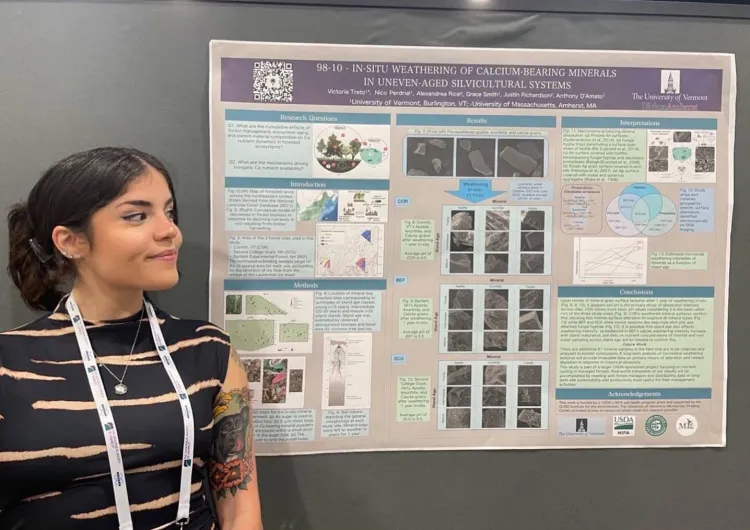Our students have also been successful in winning highly competitive spots in the National Science Foundation’s Research Experience for Undergraduates at sites around the country. Interested in getting research experience? See our faculty web profiles to discover the types of research our faculty are conducting and schedule a time to talk with faculty whose research interests you. A great way to get into research is to offer to work with a professor on a project he or she is conducting. Selected faculty research projects provide funding for student research assistants through grant awards and through a generous gift from the Oaklawn Foundation (MSWord).
Geography and geoscience students conduct research under the guidance of a faculty mentor, typically to complete an honors pathway in the degree. Students conducting research may earn academic credit as GEOG and GEOL 3995, typically in the junior year, or as Geog 297/298, typically in the senior year.

Research Spotlights
Funding and Fellowships
Funding and Fellowships
The Office of Fellowships, Opportunities and Undergraduate Research (FOUR) provides competitively awarded funds for students conducting research. Targeted funding opportunities are available for students interested in conducting community-based, Vermont-based research, and environmentally-related research.
Funding awards to support student research projects are also available through the College of Arts and Sciences APLE awards program. Applications for these awards are due on October 31 and February 15 each year.
Our students have been highly successful in winning these competitive grant awards to support their research. Interested in pursuing research funding? Speak with your advisor or research mentor about preparing an application.